Tag archives: South Korea
A temporary lack of neutrons
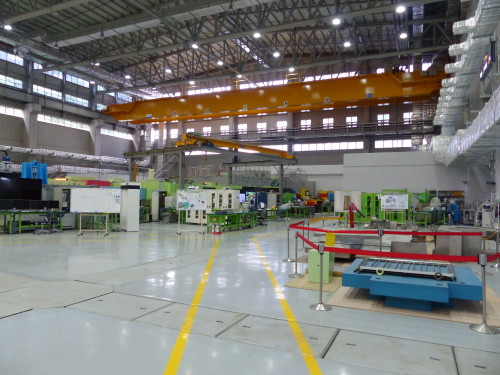
The guide hall at the HANARO research reactor in Daejeon, Republic of Korea.
By Margaret Harris in Daejeon, Republic of Korea
For almost three years, the HANARO research reactor has been idle. Built in 1995 as a hub for neutron-scattering experiments, radioisotope production and other scientific work, HANARO (High Flux Advanced Neutron Application Reactor) is the only facility of its kind in the Republic of Korea, and it underwent a major upgrade in 2009. Then, in 2014, the facility became a delayed casualty of the meltdown at Japan’s Fukushima Dai-Ichi nuclear power station, as enhanced regulatory scrutiny led to the discovery that the reactor hall’s outer wall was not up to the latest standards. An enforced shutdown followed while the wall was reinforced, and although the works were supposed to take just 18 months, opposition from local citizens’ groups has led to further delays.
View all posts by this author | View this author's profile
South Korea – round-up

Physics could get a boost in Korea if PSY brought out a physics-related number.
By Matin Durrani and Michael Banks
Sitting in the lounge at Incheon Airport in Seoul waiting for the flight back to London, we’ve decided to draw up a list of 10 random things that the two of us have picked up while on the Physics World editorial visit to Korea. The list is based on observations we’ve made or little nuggets that physicists in the country have told us during our week-long trip. The list is just a bit of fun, so here goes.
View all posts by this author | View this author's profile
South Korea – day seven
The heat is off – the Seoul skyline this morning from the 22nd floor of the Ramada Hotel.
By Matin Durrani
The weather today in Seoul started off damp and cool as I made my way to the City Hall subway stop and then headed left down a little side street to the British Embassy. I was there to meet Gareth Davies, who is head of science and innovation at the embassy.
View all posts by this author | View this author's profile
South Korea – day six
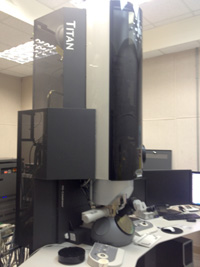
A transmission electron microscope at KIST.
By Michael Banks
The first thing Kyung-Ho Shin, vice president of international affairs at the Korean Institute of Science and Technology (KIST), passed me when we met in the lobby of my hotel today was an umbrella.
Today Seoul has had a very good watering, but after the recent warm weather the change could be seen as being welcome.
In the morning’s pouring rain, I visited KIST, which was created in 1966 to help commercialize basic research. The 2000 or so researchers based at KIST carry out work in areas from neuroscience and fuel cells to robotics and medicine.
View all posts by this author | View this author's profile
South Korea – day five
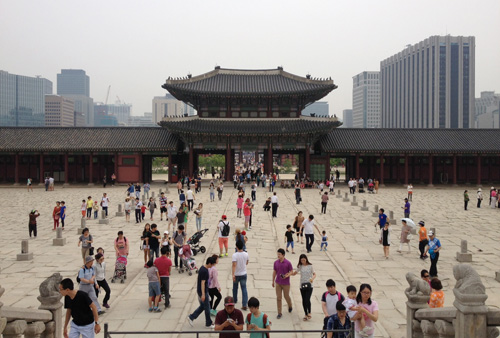
The Gyeongbokgung.
By Michael Banks
Today I was traveling back from Pohang where I spent the weekend after an busy few days in Daejeon.
Daejeon is certainly an impressive place to do science, being home to no fewer than 60 research centres. Unfortunately, in the limited time I had I could only visit a couple, including the Korean Research Institute of Standards and Science and the National Fusion Research Institute (NFRI).
View all posts by this author | View this author's profile
South Korea – day four
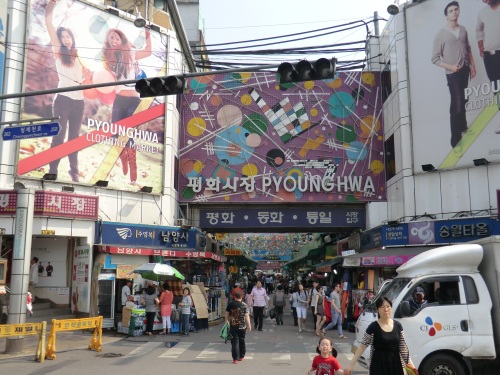
Off shopping at Seoul’s famous Dongdaemun market.
By Matin Durrani
Being a Saturday, the fourth day of the Physics World tour of South Korea was – to adopt cricketing parlance – a rest day. But don’t worry, I haven’t been slumped in front of my television in the hotel bedroom wolfing down South Korean style pot noodles and cups of tepid green tea all day. Oh no, that was just what I did in the morning.
View all posts by this author | View this author's profile
South Korea – day three
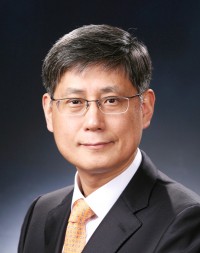
Sang-il Park, Park Systems boss.
By Matin Durrani
Day three for the Physics World editorial visit to South Korea saw news editor Michael Banks spend the day at the KSTAR fusion facility while I was at atomic-force microscope (AFM) manufacturer Park Systems in Suwon.
South Korea is, of course, a key player in fusion science, being a long-standing member of the ITER experiment being built in the south of France. But as Michael is now in the south of the country – in Pohang to be precise – I haven’t had full details of how his visit to KSTAR went. He did, however, e-mail me to say that he’d asked his contact at the lab whether they’d ever had any other visits from journalists. She said they hadn’t, but there was once this very famous scientist who had taken a tour of KSTAR – step forward none other than the physicist who’s on just about every UK TV science show at the moment: Brian Cox.
South Korea – day two
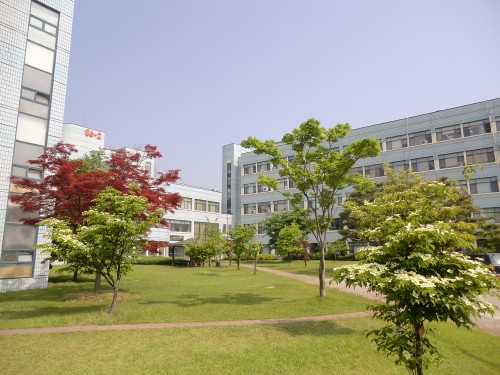
The physics department at KAIST.
By Matin Durrani
Today was the first full day in South Korea for myself and Physics World news editor Michael Banks and it saw us head off by car from our hotel in downtown Daejeon to the massive science and technology zone in the north of the city. Home to more than 1000 research institutes, universities and start-ups, the zone is called Daedeok Innopolis; it’s a kind of putative Silicon Valley, if you like.
South Korea – day one
By Matin Durrani

South Korea: physics rising star.
Hello from South Korea, where I’m on a week-long tour with Physics World news editor Michael Banks. We’re here to visit a series of top physics institutes and research organizations in a trip that’s taken several months of careful planning to arrange.
There are three main reasons for coming here. The first is to gather material for a Physics World special report on physics in South Korea, which will be published in September. This report will follow on from our previous special reports on India, Japan and China.